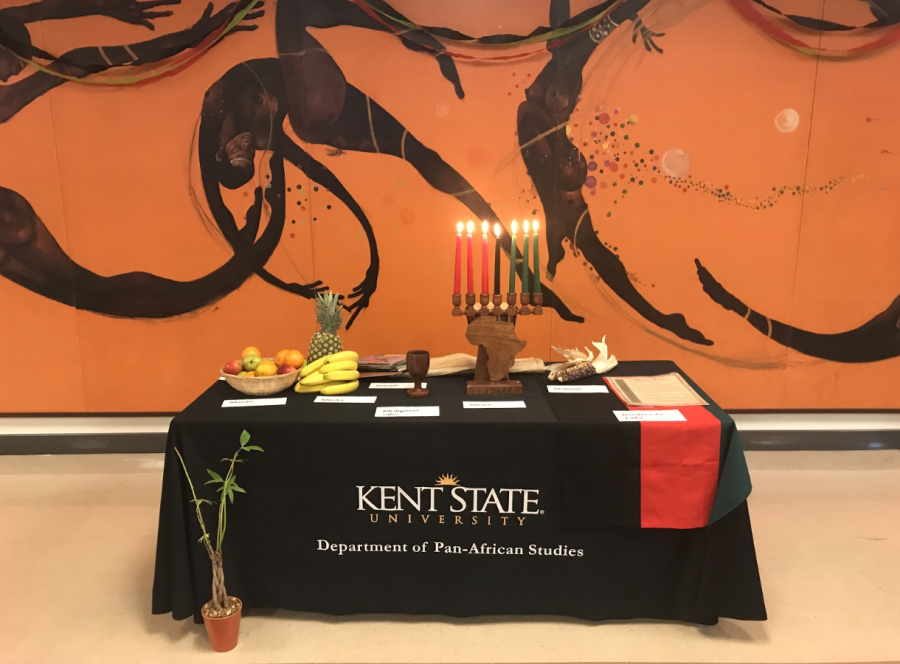Center of Pan-African culture hosts annual pre-Kwanzaa celebration
This is the traditional Kwanzaa table set up by the Department of Pan-African Studies. In the play, the meaning of each item on the table was explained.
December 8, 2019
The Center of Pan-African Culture put together its annual pre-Kwanzaa Celebration Saturday in Oscar Ritchie Hall.
The celebration began with an on-stage teaching of the history and purpose of Kwanzaa. Kwanzaa is important for connecting with African tradition. The celebration explained how one of the biggest purposes of Kwanzaa is to promote unity among others.
The holiday’s beginnings trace back to 1966, the beginning of the black power movement in the United States, when it was created by Maulana Karenga as a way to celebrate Pan-African culture.
After the Kwanzaa teaching, 12 o’clock Tribe performed a traditional Pan-African Drum Call, followed by the main performance of the celebration: First Fruits, A Kwanzaa Play. The play was performed by youth from the Fulani Institute of Academics and Arts and directed by Dr. Asantewa Sunni-Ali.
The play was a lesson about the traditions and symbols of Kwanzaa. It opened with a traditional dance and throughout the play the cast sang Kwanzaa songs and explained the meanings of traditional words, items and rituals. The play focused on the ritual of setting the table for Kwanzaa. The cast went into detail about the significance of each item placed, and how one is never more important than another.
“I was representing the principal of Umoja in the play,” said NyAshia Gooden-Clarke, one of the students in the Fulani Institute. “Umoja represents unity and bringing people together as a group.”
The Center of Pan-African Culture’s Fulani Institute of Academics and Arts is an institute for the local youth of Kent to be engaged in cultural, educational and creative activities and projects.
“The Fulani Institute is housed within the Center for Pan-African Culture which is itself housed within the Department of Pan-African Studies,” said Amoaba Gooden, the chair of Pan-African studies. “The primary purpose of the Center for Pan-African Culture is to expose the Kent State community and surrounding communities to African and Pan-African culture.”
The Fulani Institute is for academics and art. Tutoring and art programs are offered within the institute which students attend every other Saturday.
“The history of African people and their contributions to not just the United States, but to the world are often marginalized and/or erased from history,” said Dr. Asantewa Sunni-Ali, the director of the Center of Pan-African Culture. “Our stories are too often left out so we want to provide that knowledge for youth where they would otherwise not get it.”
“We want people to know that our program is open to the entire Kent State community and surrounding communities,” Gooden said. “It is certainly a fun way to learn about Africa and African-derrived culture.”
Contact Aidan Coyne at [email protected]












